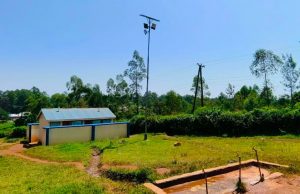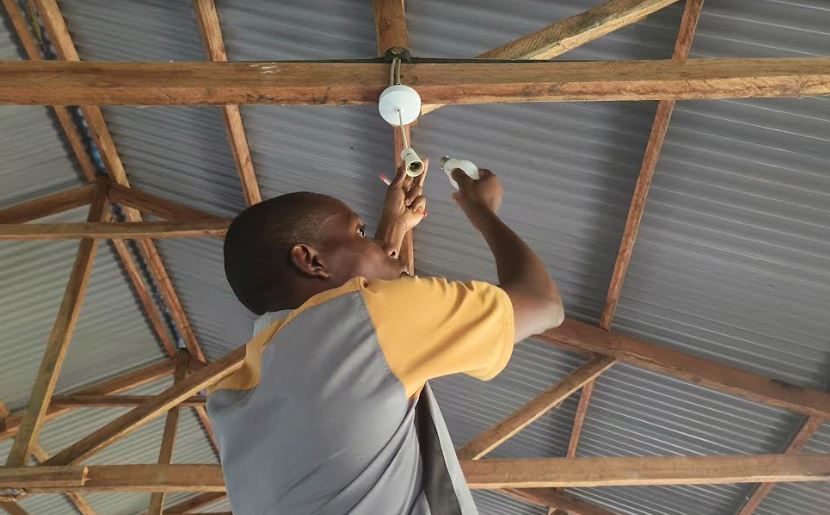At least 100 secondary boarding schools in the country are set to benefit from efficient lighting equipment that will help in reducing costs incurred in paying electricity bills.
The schools are from Busia, Embu, Homabay, Kakamega, Kisumu, Kitui, Laikipia, Machakos, Nairobi, Nakuru, Nyeri, and Uasin Gishu counties.
They will receive donations of LED tubes and solar outdoor lighting appliances from the Signify Foundation through the state Department of Energy on a pilot programme.
The LED tubes and solar outdoor appliances will replace the high energy consumption fluorescent tube lights and bulbs.
A team of inspectors from the Ministry of Energy and Petroleum, Energy and Petroleum Regulatory Authority (EPRA), and Sustainable Energy For All (SE4ALL) inspected various schools to assess their readiness for the pilot project.
The inspectors visited several schools in Kakamega, including Lwanda Dudi Secondary School, Mwihila High School, Namasoli Secondary School, Moi Girls Nangili, Khwisero Girls, and St. Antony Kakoyi, among others.

The Ministry will then develop a learning pack and avail them to schools for students and teachers to understand the benefits of energy-efficient lighting solutions.
The Head Teacher of Lwanda Dudi Secondary School, Dr. Elizabeth Aseka, welcomed the project with hopes that it will help in cutting down the cost of electricity bills, which currently stands at over Sh30 000 per month for a school with a population of 565 students, of whom 150 are boarders.
“Our electricity bills are very high, and they have really shot up in the recent past. This is a very big challenge for us because funding is a problem because we depend on the government for funding. So there are times when you need to pay these bills, which are very high, yet the government hasn’t released funds,” Dr. Aseka noted.
She said that Kenya Power and Lighting Company (KPLC) sometimes issues warnings of disconnecting power for failure to clear electricity bills.
“So sometimes we are threatened that the electricity will be cut off, so we are forced to go out of our way, which inconveniences other vote heads so that we can pay the electricity bills to minimise interruption of learning,” she added.
“We also encounter power outages, and when there are outages, we experience a very big problem for us since we have a boarding section in the school,” Dr. Aseka noted.
The Principal of Mwihila Boys High School in Khwisero, Maurice Ajulu, says the school spends more than Sh. 75 000 on electricity bills monthly.
He says, to reduce the cost of electricity, the school has installed solar panels for security lighting, but they are still facing challenges since the school is vast, covering 33 acres of land.
“Lighting the entire area will need quite a lot of those high mast flood lights, yet we are not able to do that at the same time due to financial constraints, but at least we have started. That is another area where we may need some assistance to improve our security,” he noted.
Mr. Ajulu said replacing the type of bulbs the school uses with the more efficient energy-saving bulbs will help the school in cutting down expenses on electricity.
To try and reduce electricity costs, the management of Lwanda Dudi Secondary School has tried to replace high-voltage bulbs with energy-efficient ones.
A teacher at the school, Nicholus Opati, says they ensure they switch off security lights early during the day to minimise usage.
Opati asked for an automated system that can automatically switch off and on the lights.
By Moses Wekesa


